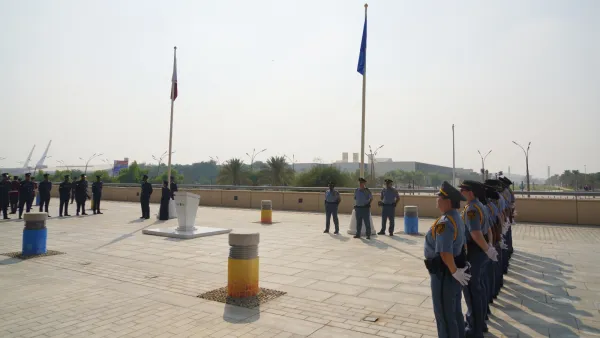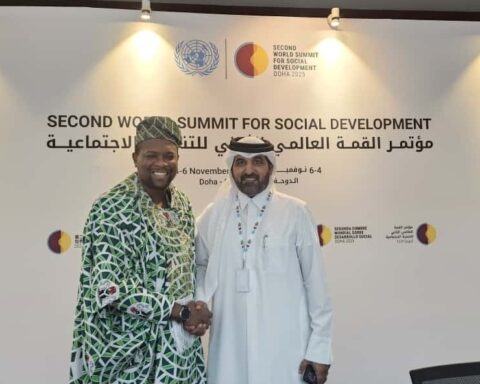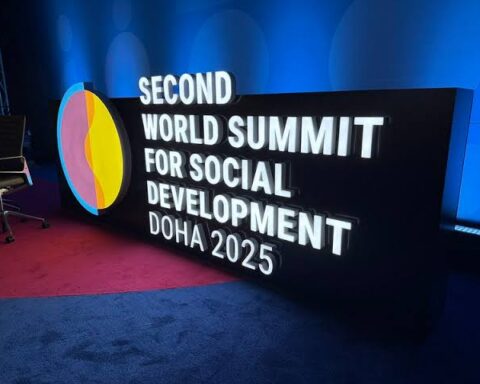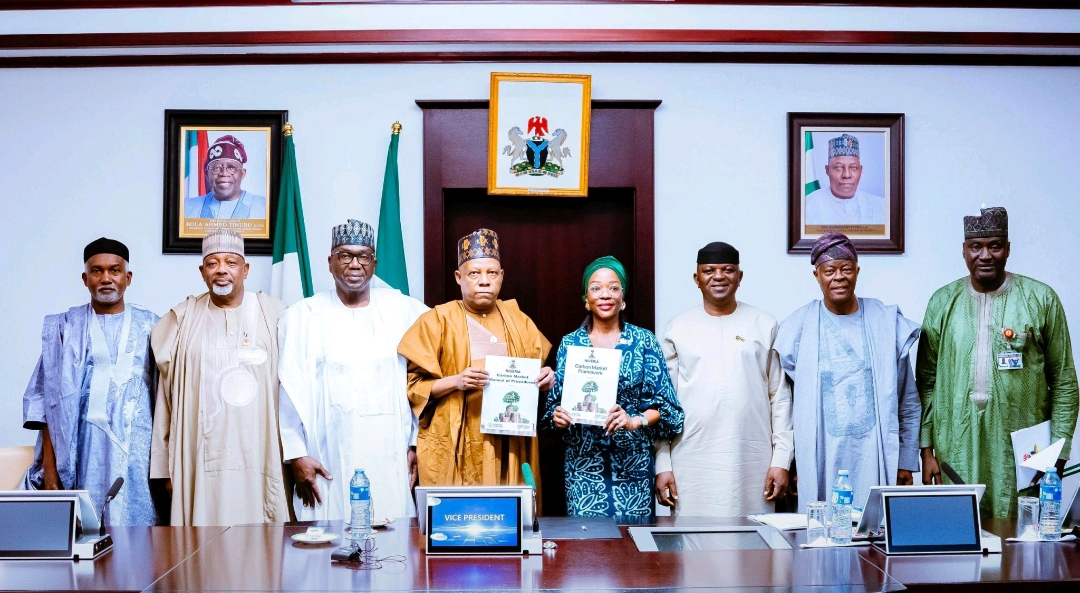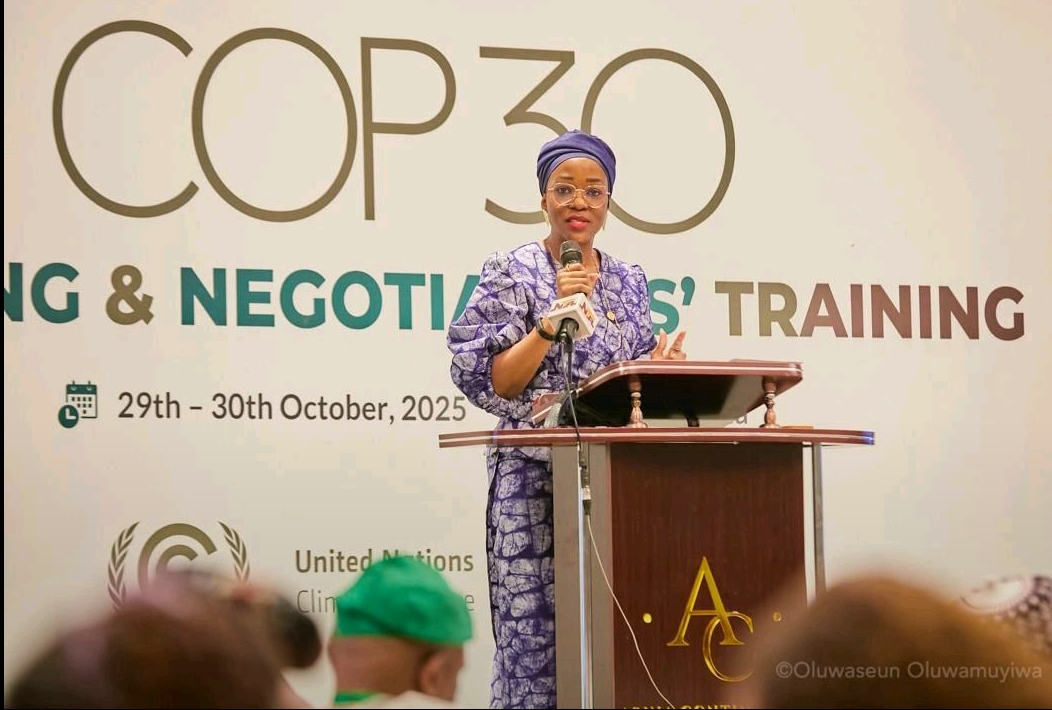The flags of the United Nations and the State of Qatar were hoisted side by side on Sunday, symbolising a renewed global commitment to social justice, equality, and inclusive growth as preparations intensified for the Second World Summit for Social Development.
The brief but symbolic ceremony, held at the Qatar National Convention Centre (QNCC), marked the United Nations’ formal assumption of the venue that will, over the next three days host thousands of delegates from around the world, including Heads of State, ministers, civil society leaders, youth, and private sector representatives.
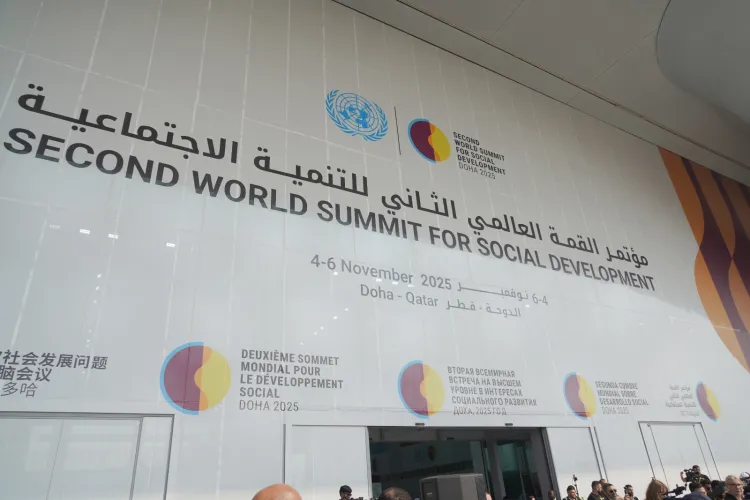
Speaking at the flag-raising ceremony, Li Junhua, the UN Under-Secretary-General for Economic and Social Affairs, described the moment as a reflection of shared humanity and collective purpose.
“This moment formally marks the handover of this landmark facility to the United Nations,” he said. “The QNCC is now transformed into a space where the global community will gather to advance solutions and renew hope.”
Li stressed that the Summit would be pivotal in addressing social fractures worsened by economic crises, climate change, and conflicts, urging global leaders to translate commitments into tangible progress for vulnerable populations.
On his part, Ahmad Hassen Al-Hamadi, Secretary General of Qatar’s Ministry of Foreign Affairs, reaffirmed the country’s commitment to fostering global partnerships for equitable social transformation.
“We are confident that this Summit will provide a pivotal opportunity to reaffirm political will and capitalise on the abundant opportunities to accelerate transformative actions for social development and justice for all,” he said.
“Our shared vision must go beyond words to practical actions that ensure no one is left behind in the pursuit of the 2030 Agenda for Sustainable Development.”
Over the coming days, more than 14,000 participants are expected to converge on Doha for the Summit, which aims to renew the global social contract and accelerate progress toward the Sustainable Development Goals (SDGs), particularly those related to social protection, decent work, and poverty eradication.
Plenary sessions, high-level roundtables, and parallel forums will feature discussions on reducing inequality, improving social inclusion, strengthening labour systems, and promoting sustainable livelihoods for vulnerable and marginalised communities issues that resonate deeply across Africa, where unemployment and social exclusion remain pressing concerns.
According to a preview released by the UN last week, Secretary-General António Guterres is scheduled to address the opening ceremony on Tuesday.
He is expected to reflect on global social progress since the first World Social Summit held in Copenhagen in 1995, while highlighting contemporary challenges including economic inequality, unemployment, conflicts, and worsening humanitarian crises.
“We are meeting at a time when billions of people are facing hardship from unemployment and poverty to displacement and conflict. This Summit must renew the spirit of global solidarity,” Guterres is expected to tell delegates, according to UN Spokesperson Stéphane Dujarric.
Africa’s Lens: A Call for Inclusive Development
For many African nations, including Nigeria, the Doha Summit represents a crucial opportunity to push for fairer international policies that address the social dimensions of development such as access to healthcare, quality education, and social protection for informal workers.
Development experts say that while Africa has made progress in poverty reduction and digital inclusion, the continent still lags behind in social safety nets and equitable job creation gaps that the Summit’s deliberations could help bridge.
Dr. Grace Oladipo, a social policy analyst based in Lagos, told DA News that Africa’s participation in the Summit is vital for shaping a global agenda that recognises the continent’s unique challenges and opportunities.
“This Summit offers a chance for Nigeria and other African countries to advocate for policies that go beyond GDP growth,” she said. “Social justice means investing in people in women, youth, and vulnerable communities that are often excluded from formal development frameworks.”
Similarly, Dr. Kelechi Eze, an economist and climate justice advocate, noted that the renewed focus on social protection at the Doha Summit aligns with Africa’s broader struggle to recover from post-pandemic shocks and climate-induced displacements.
“For Africa, social development is inseparable from climate resilience,” Eze said. “You can’t build a sustainable future if people are left without jobs, healthcare, or protection against environmental shocks.”
A New Chapter for Global Social Solidarity
The Second World Summit for Social Development seeks to build on the legacy of the 1995 Copenhagen Declaration, which enshrined the principles of people-centered development, social inclusion, and equity.
Thirty years later, the Doha gathering aims to translate those ideals into renewed commitments and practical frameworks for today’s complex realities.
Observers note that the Summit is taking place at a critical time when global inequalities have widened dramatically, with the richest 10% controlling more than half of the world’s wealth, while over 700 million people remain trapped in extreme poverty.
For Nigeria and other African nations, the discussions in Doha will likely influence the global financing and partnership mechanisms needed to support social safety reforms, youth employment, and inclusive economic growth.
As the UN and Qatar flags fluttered side by side under the Doha sun, the symbolism was clear a world yearning for unity, and a call for nations to recommit to building societies that place human well-being at the heart of development.
The Second World Summit for Social Development takes place from November 4–6, 2025, at the Qatar National Convention Centre, Doha. DA News will provide on-the-ground coverage from the Summit, highlighting key outcomes and African perspectives shaping global social policy.
By Dare Akogun, Doha


